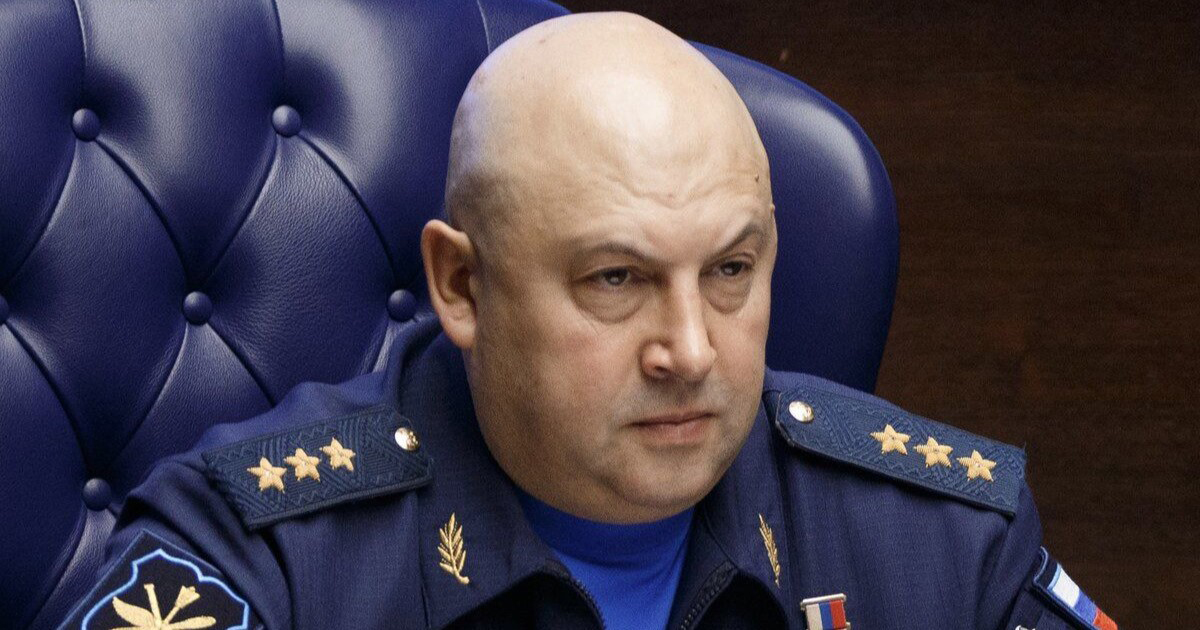MOSCOW, (Reuters) – The Kremlin declined yesterday to give any details about the fate of Russian General Sergei Surovikin, whose status and location have not been made public since an abortive armed mutiny by mercenaries on Saturday.
Nicknamed “General Armageddon” by the Russian press for his aggressive tactics in Syria’s war, Surovikin – who is a deputy commander of Russian forces in Ukraine – has been absent from view since Saturday, when he appeared in a video appealing to mercenary leader Yevgeny Prigozhin to call off his mutiny.
Surovikin had looked exhausted in that video and it was unclear if he was speaking under duress. There have since been unconfirmed reports that he is being questioned by the security services.
Kremlin spokesman Dmitry Peskov referred questions about Surovikin to the defence ministry, which has so far made no statement about him.
Asked by reporters if the Kremlin could clarify the situation with Surovikin, Peskov said: “No, unfortunately not.
“So I recommend that you contact the defence ministry; this is its prerogative.”
When a reporter asked if President Vladimir Putin still trusted Surovikin, Peskov said: “He (Putin) is the supreme commander-in-chief and he works with the defence minister and with the chief of the General Staff.”
Questions about “structural units within the ministry,” Peskov said, should be addressed to the defence ministry.
The ministry did not reply to a Reuters request for clarity on the fate of Surovikin, one of Russia’s most respected generals who previously commanded Russian forces in Ukraine for several months.
Russia’s most senior generals have dropped out of public view in the wake of the mutiny aimed at toppling the top military brass, amid a drive by Putin to reassert his authority.
The mutiny, which Putin said could have tipped Russia into civil war, amounts to the biggest challenge to the Russian state since the 1991 hardline coup attempt against Mikhail Gorbachev as the Soviet Union crumbled.
Putin, Russia’s paramount leader since 1999, thanked the army and law enforcement agencies for preventing what he said would have been devastating turmoil of the kind last seen after the 1917 Bolshevik Revolution.
The 70-year-old former KGB spy was shown on Wednesday visiting a mosque at the ancient, pre-Arab Naryn-Kala citadel in the Derbent fortress on the shores of the Caspian Sea, around 2,000 km (1,240 miles) south of Moscow.
The Kremlin said Putin also chaired a meeting about the development of tourism in the region. Putin, pictured in sunglasses and without a tie, was shown speaking to local residents who took selfies with him.
The fate of Prigozhin, who rose to become Russia’s most powerful mercenary, remains unclear.
A private jet linked to Prigozhin flew from St Petersburg, the former imperial capital of Russia, to Moscow on Thursday, though it was unclear who was on the aircraft.
The Kremlin’s Peskov said he did not have information about Prigozhin’s current location.
Belarusian President Alexander Lukashenko said this week that he had persuaded Putin not to “wipe out” Prigozhin, adding that the mercenary chief had flown to Belarus.
Speaking about the causes of the mutiny, Colonel-General Andrei Kartapolov, an influential lawmaker who chairs the lower house of parliament’s defence committee, said Prigozhin had refused to sign contracts for his mercenaries to serve under the defence ministry.
As a result, Kartapolov said, Prigozhin had been told his mercenaries would no longer fight in Ukraine and no longer receive money from the Russian state.
Brazil’s Lula says inflation targets too ‘rigid’
SAO PAULO, (Reuters) – Brazilian President Luiz Inacio Lula da Silva said yesterday the country’s inflation targets were excessively rigid and renewed criticism of the central bank for high interest rates ahead of a meeting that will set its 2026 inflation goals.
Lula’s remarks came as financial markets closely watch the National Monetary Council’s (CMN) meeting later in the day for potential changes on the targets, which are currently at 3.25% for 2023 and 3% for the next two years.
“Personally, I think Brazil should not have such a rigid inflation target if it cannot meet it,” Lula said in an interview with Radio Gaucha. “But it’s not prudent for me to talk about the monetary council ahead of its meeting.”
The CMN comprises the finance minister, the planning minister and the central bank governor, giving the federal government two out of three votes on one of the thorniest economic policy debates in Latin America’s largest nation.
Lula previously hinted at potentially changing inflation targets to increase them and enable monetary policy easing, a move that ended up worsening expectations for consumer price changes.
The CMN is expected on Thursday to maintain a 3% inflation target for 2026, but there is a growing belief it may tweak the time frame used to assess the goal’s fulfillment, ditching the calendar year for a “continuous” target proposed by Finance Minister Fernando Haddad.
“I don’t want to influence on the monetary council’s decision, they know what to do,” Lula said, adding he was just voicing his opinion as a “Brazilian citizen”.
The leftist leader also renewed his criticism of the central bank for keeping benchmark interest rates at 13.75%, a level he views as hindering economic growth.
“We need lower interest rates, make them compatible with inflation levels,” Lula said.
Annual inflation in the country is currently running around 4%, but an uptick is expected from July because of unfavorable base effects. Brazil failed to meet its inflation goals in 2021 and 2022.










